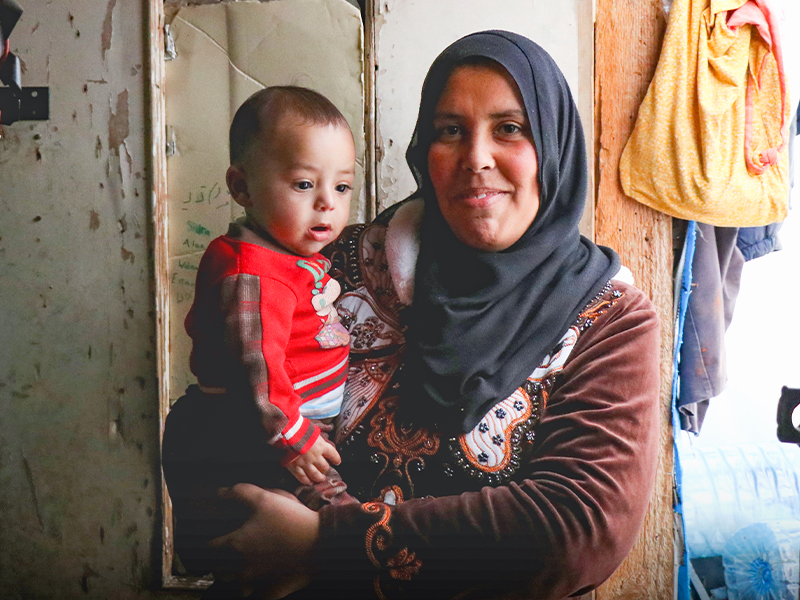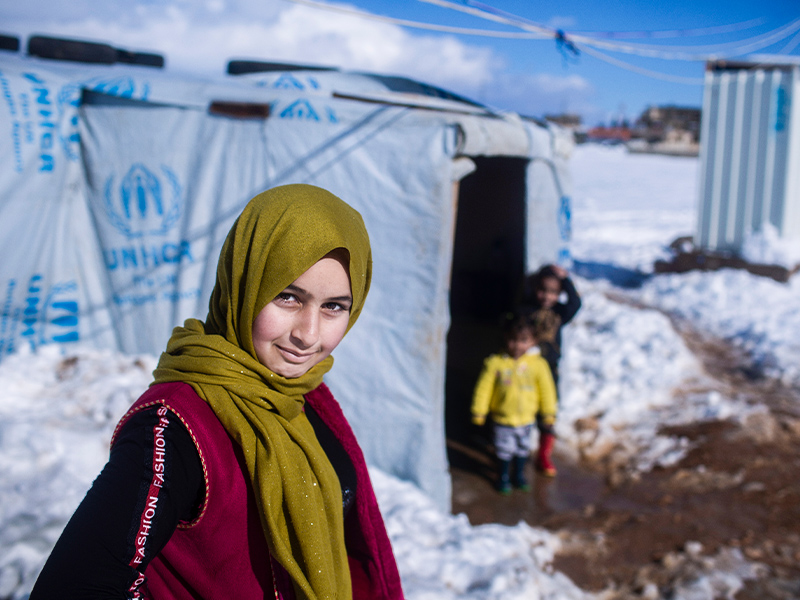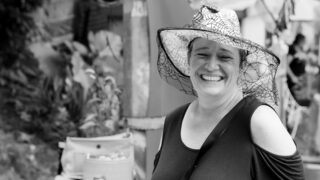COVID-19 is worsening the plight of millions of forcibly displaced and stateless people worldwide. Prices of basic food and commodities are increasing and many struggle to afford goods in addition to paying rent. Rising costs lead to higher risk of eviction and mental health issues, especially in the most life-threatening time of year – winter. UNHCR, the UN Refugee Agency, estimates that four million people urgently need help for the colder months.
For refugees and internally displaced people in Syria, Lebanon, Jordan, Iraq and Egypt, this year will be their 10th consecutive winter in displacement. Now, families are facing even greater hardships due to the pandemic and its socio-economic impact.
Not just the weather
Sondos Elnour is a Field Officer with UNHCR. She points out that the social distancing and movement restrictions in place in many countries on account of COVID-19 mean many refugees are unable to go to work and businesses are not operating.
Refugees who have been displaced for longer, some multiple times, have often exhausted their savings long ago. The situation is particularly worrying in Lebanon as it faces multiple challenges: economic crisis, the pandemic, impact of the Syrian war and the Beirut explosion, and harsh winter weather. Without income, vulnerable families can’t meet essential needs such as heaters, fuel, food and medicine.
The power of choice
Nearly one million refugees in Lebanon are living below the poverty line. Over half of Syrian refugee families are unable to meet survival needs on extremely low incomes of a little over HK$20 per person per day. UNHCR helps vulnerable refugees and communities in countries like Lebanon in three ways. By giving emergency cash assistance, providing lifesaving items, and insulating and repairing shelters.
Humanitarian cash assistance helps to restore dignity and enhance individual choice. Cash is flexible: refugee families can use it to buy fuel for heating units or to pay rent for a warm space, the same way that local communities do.
UNHCR has many years of experience using cash grants and vouchers to help refugees. It’s a cost-effective way for the organisation to protect and assist refugees in areas including health, education and livelihoods.
Proven success
After fleeing the besieged city of Homs in Syria, Noura (above) now lives in Lebanon with her husband Hussein and four young children. Their shelter was badly flooded by last year’s winter rains and snowmelt. Winter cash assistance from UNHCR gave them the ability and choice to buy a heater for the first time. “Without the winter aid, my situation would’ve been very bad,” says Noura. “It came as a saviour in a time of hardship, it really helped me, it helped me a lot.”
Noura hopes that she’ll receive cash assistance again this winter, so she can afford to keep her children warm and dry. “It will be a weight off our shoulders,” says Hussein.
New challenges
The pandemic is bringing new challenges to how UNHCR prioritises shelter and settlement activities. And it’s likely to affect funding for essential life-saving winter assistance this year and next. In Lebanon this year, the aim is to distribute five months of winter cash assistance (around HK$1,700 per family) to eligible and highly vulnerable families.
All support is welcome to help UNHCR reliably plan its life-saving work for winter; HK$1,500 can supply 10 winter jackets for people in need. So your kindness could mean a refugee is warm this winter.
For more information, visit unhcr.org/hk/en/winter.
This article first appeared in the Winter 2020 issue of Expat Living magazine. Subscribe now so you never miss an issue.







